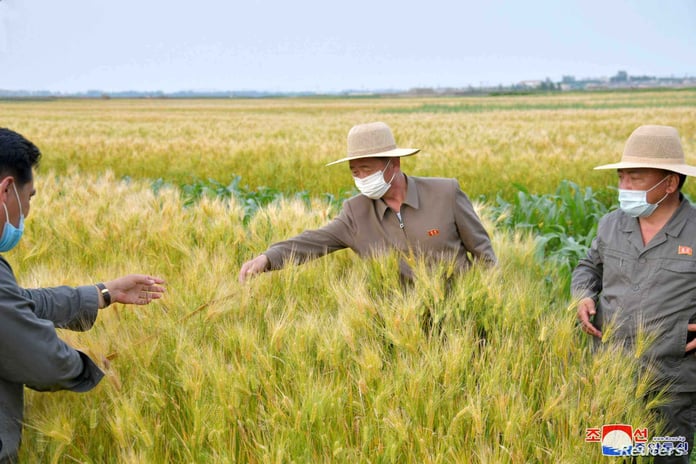At the beginning of the summer, North Korean leader Kim Jong-Un described the country’s food situation as “tense” after the borders were closed due to the Corona pandemic and floods. By midsummer, extreme heat and record low rainfall could be a sign of a larger food crisis and hunger ahead, according to the American newspaper, The Washington Post .
Temperatures in North Korea rose to 39 degrees Celsius in some areas this week, setting a precedent in the country, while the heatwave was exacerbated by the increasing drought.
North Korea recorded 21.2 mm, or less than an inch, of rain through mid-July, an unprecedentedly low amount for this time of year, according to state media.
Because of the hot weather, state media has repeatedly warned residents of the dangers of dehydration and low sodium levels, especially for the elderly and those at risk of heart disease or stroke.
Residents were urged to stay out of the sun, eat more fruits and vegetables, and drink more than two liters of water per day.
These harsh conditions could have far-reaching effects in a country with poor irrigation systems and an ongoing food crisis, which could increase pressure on the Kim regime amid severe economic pressures from UN sanctions over Pyongyang’s nuclear program.
North Korea last year faced its worst economic recession in more than two decades due to the closure of its border with China in an attempt to prevent the spread of the Coronavirus infection, as well as floods and typhoons that caused further damage.
Experts say the lack of water supply in rural areas is exacerbating the difficulties North Korean farmers are facing this year, including the inability to access trade-dependent items such as fertilizer, fuel, and specialized machinery that they can no longer obtain. North Korea has halted many commercial activities during the pandemic, and international sanctions have limited import options for the agricultural sector.
North Korean agricultural expert Kwon Tae-Jin said the country is expected to experience significant food shortages this year, including grain and rice.
It is reported that the current food shortage will not lead to famine like the one that occurred in the 1990s, which killed hundreds of thousands of people, according to North Korean statistics.
North Korea, whose economy is reeling under the weight of multiple international sanctions imposed in response to its banned military programs, has become more isolated than ever since closing its borders to prevent the spread of the coronavirus.
And in mid-June, Kim acknowledged that his country was suffering from a food crisis, and sounded the alarm in a country where the agricultural sector has since faced serious difficulties.
North Korea closed its borders in January 2020 and trade with China, its first economic and diplomatic backer, has fallen to the lowest level.


